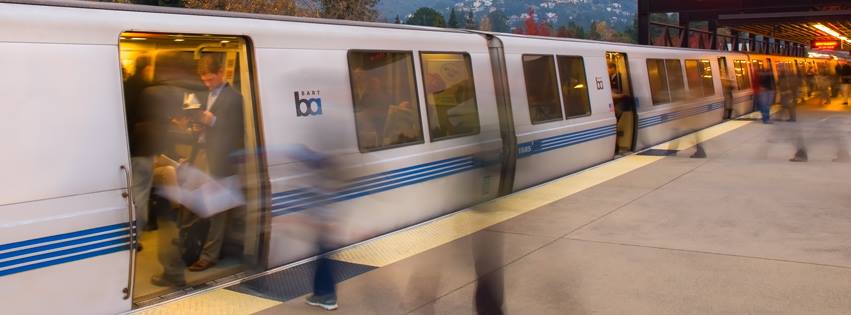BART Officials: Stability Requires Emergency Funds for “Catastrophic Revenue Loss”

BART continues regular service during shelter in place. BART will continue to provide regular service for riders performing essential activities and for riders travelling to and from “essential business” work, with long enough trains to allow for social distancing.
UPDATE: Future financial stability requires emergency funds according to BART officials. BART lost 70% of its riders on Monday (118,752 riders rode BART on Monday) and initial data for Tuesday’s commute shows an 85% decline.
“BART is requesting a direct allocation of $55M to offset our loss in revenue… Access to emergency funding is needed to keep the Bay Area moving once the region begins to recover.” Read the full report on bart.gov
—
Essential travel includes travel:
* to obtain necessary services or supplies for themselves and their family or household members.
* to engage in activities or perform tasks essential to their health and safety, or to the health and safety of their family or household members.
* to care for elderly, minors, dependents, persons with disabilities, or other vulnerable persons.
* to or from educational institutions for purposes of receiving materials for distance learning, for receiving meals, and any other related services.
* to return to a place of residence from outside the jurisdiction.
* required by law enforcement or court order.
* required for non-residents to return to their place of residence outside the County.
Be mindful that with the Shelter in Place Order, for people who are traveling for something that isn’t deemed to be “essential travel”, there is a potential misdemeanor charge.







